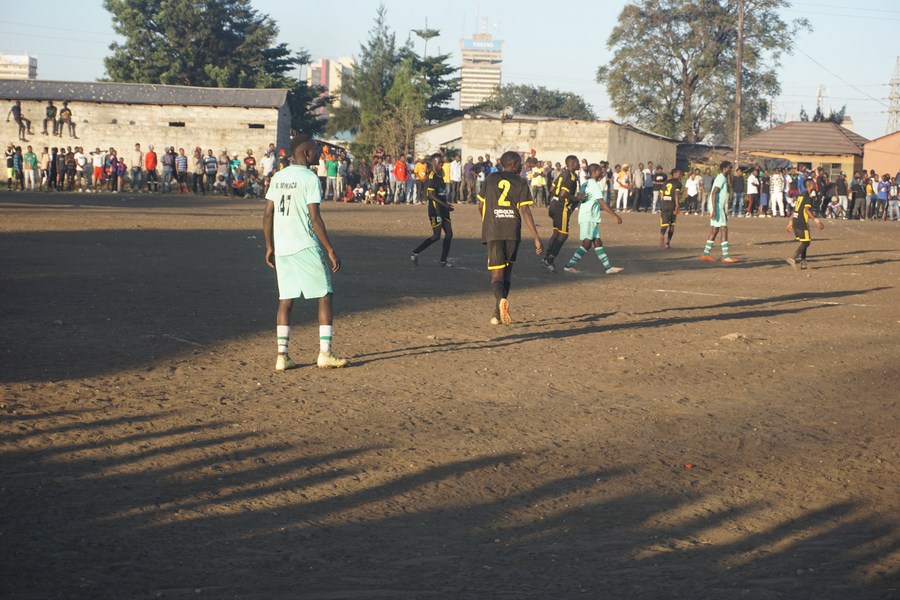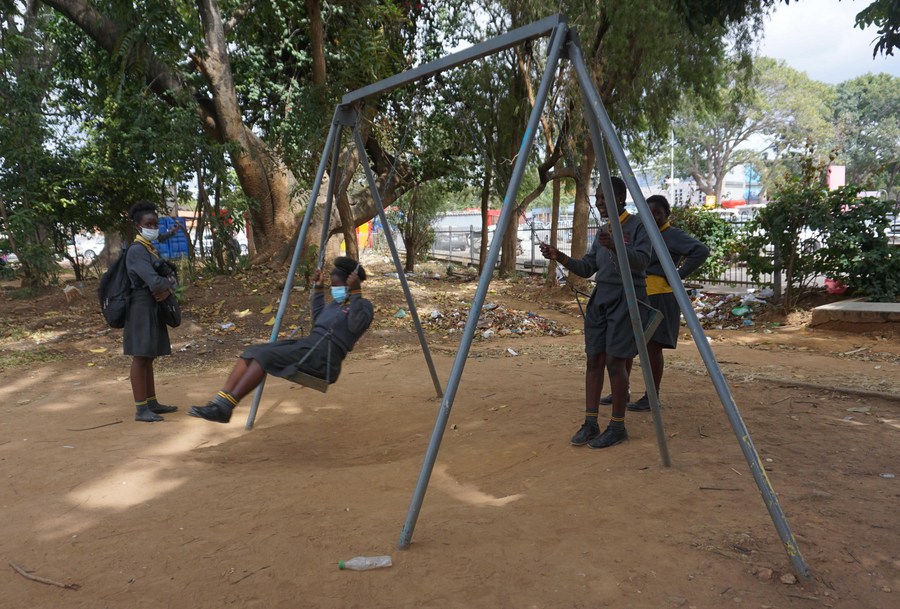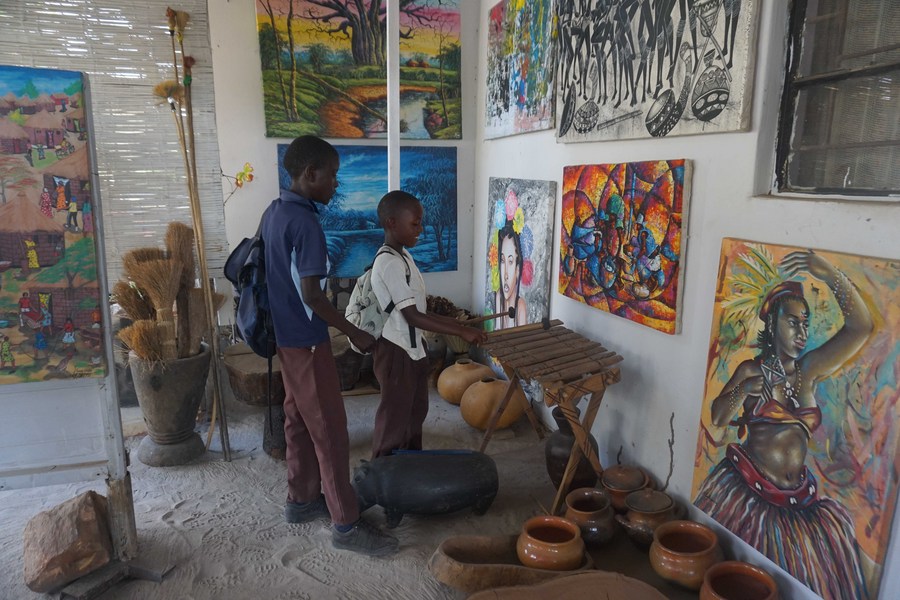
The file photo shows a football match held between Chibolya Sports Academy and PATVEE Football Academy on a community playground in Lusaka, Zambia, on May 28, 2023. (Photo by Lillian Banda/Xinhua)
For years, children in Zambia's urban areas, as in many parts of the world, have been drawn to screens, spending hours in front of televisions, computers, phones, and gaming devices. However, the power cuts have forced them to find alternative ways to entertain themselves, leading to a resurgence of traditional and indigenous games.
LUSAKA, June 16 (Xinhua) -- It was 12:00 p.m., and 11-year-old Zanele Mbewe, a resident of Northgate Gardens in the Zambian capital of Lusaka, had just come home from school.
After completing her homework, Zanele would head next door to play Nsolo, a simpler form of chess. She would also participate in other traditional and indigenous games with other children. This has been her routine for the past five days.
"This week, the power goes off at 5 a.m. and comes back on at 5 p.m.," she explained while looking at the power rationing timetable from Zambia's national electricity supply company, ZESCO, stuck on the door of the refrigerator in her household.
As homes and communities endure more than 10 hours of power cuts each day, children in Zambia are finding themselves with a newfound opportunity to engage in traditional indigenous games, replacing hours spent in front of televisions and other electronic devices.
For years, children in Zambia's urban areas, as in many parts of the world, have been drawn to screens, spending hours in front of televisions, computers, phones, and gaming devices. However, the power cuts have forced them to find alternative ways to entertain themselves, leading to a resurgence of traditional and indigenous games.

The file photo shows schoolgirls playing on swings at a play park in Lusaka, Zambia, on May 24, 2021. (Photo by Lillian Banda/Xinhua)
In the densely populated community of the Mandevu Compound, on the northern side of Lusaka, children can be seen playing a variety of games, such as skipping rope, hopscotch, and tag, which were once part of the daily routine of previous generations.
"Before the power rationing started, children were always indoors, glued to their screens, watching TV or playing video games. Now, with the lack of electricity for several hours each day, they have turned to playing traditional games," Herald Kakomai, 62, a senior citizen residing in Mandevu Compound.
He also noted that the lack of electricity has compelled children in his neighborhood to engage in various sports activities, building relationships that go beyond the virtual world.
Justine Nyirenda, a traditional and indigenous sports promoter, asserted that the current electricity rationing in Zambia has unintentionally encouraged a return to age-old pastimes that involve teamwork, creativity, and physical activity, which are often overlooked in a digitally dominated world.
Nyirenda, who heads Kombolani, an indigenous sports association, further said the resurgence of traditional and indigenous games has allowed children to connect with Zambia's cultural heritage and learn about traditions that have been passed down from previous generations.
"These games not only provide entertainment, but also serve as a way for children to connect with their roots and foster a sense of pride in their cultural identity," he said.

The file photo shows a child learning to play a traditional Zambian musical instrument at Manja Arts Center in Mtendere Township of Lusaka, Zambia, on Sept. 13, 2021. (Photo by Lillian Banda/Xinhua)
Interactions with different members of the public have shown that the decrease in screen time has also resulted in children becoming more physically active, decreasing sedentary behavior, and improving their overall health and well-being.
Electricity rationing in Zambia has often been necessitated by low water levels at the Kariba Dam, a key hydroelectric generation point for the country. Low water levels at the dam are caused by insufficient rainfall and drought conditions.
Zambian Minister of Energy Peter Kapala said in a statement in May that the Kariba Dam power station was producing only 166 megawatts out of an installed capacity of 1,080 megawatts, leaving communities without electricity for more than 10 hours a day.
While the lack of access to electricity has posed challenges for households and businesses, it has created opportunities for children to embrace age-old games that were once at risk of being forgotten.
As children across the country trade the glow of screens for the warmth of community interaction, the positive ripple effects of this unexpected situation will continue to serve as a silver lining to Zambia's power cuts. ■












